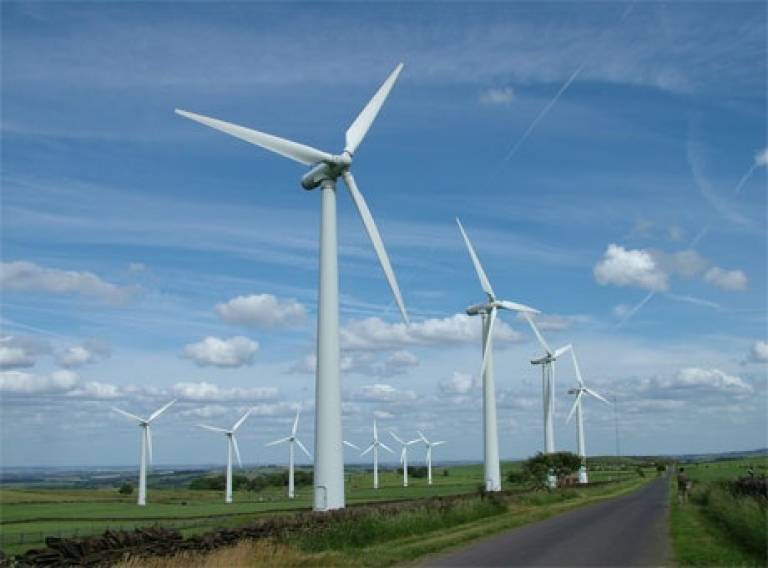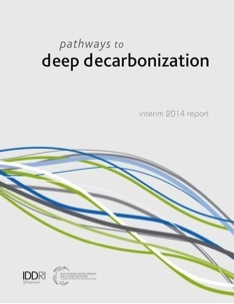Deep Decarbonization Pathways Project (DDPP) presents to UN Secretary-General Ban Ki-Moon
11 July 2014

The Deep Decarbonization Pathways Project (DDPP) interim report has been presented in a briefing on July 8 to UN Secretary-General Ban Ki-Moon, and the day after to the French government, as host of the 2015 United Nations Framework Convention on Climate Change (UNFCCC) climate conference. The interim report supports the UN Climate Summit on September 23, 2014. The full DDPP report will be presented in the spring of 2015.
The report, produced cooperatively by leading research institutes in 15 countries, is the first global cooperative program to identify practical pathways to a low-carbon economy by 2050. Steve Pye and Gabrial Anandarajah from UCL Energy Institute lead the UK analysis.
“The Deep Decarbonization Pathways Project report is an effort to demonstrate how countries can contribute to achieving the globally agreed target of limiting global temperature rise to below 2 degrees,” said Secretary-General Ban Ki-Moon. “The world has committed to limit warming to below 2 degrees C, but it has not committed to the practical ways to achieve that goal,” said Jeffrey Sachs, director of the SDSN and of Columbia University’s Earth Institute. “This report is all about the practicalities. Success will be tough – the needed transformation is enormous – but is feasible, and is needed to keep the world safe for us and for future generations. One key message is to invest in developing the low-carbon technologies that can make a difference.”
The report aims to help countries to set bold targets as they go into next year’s climate negotiations. It is issued midway in the project in order to support the deliberations at the UN Climate Summit on Sept. 23. The report is a joint project of independent research teams in 15 countries, with around 30 participating scientific institutions. The countries include Australia, Brazil, Canada, China, France, Germany, India, Indonesia, Japan, Mexico, Russia, South Africa, South Korea, the United Kingdom and the United States. The International Energy Agency (IEA) and the World Business Council on Sustainable Development (WBCSD) also brought their expertise to the project. These institutions convened under the auspices of the Sustainable Development Solutions Network, an initiative of Columbia University’s Earth Institute for the UN, and the Institute for Sustainable Development and International Relations, a nonprofit policy research institute based in Paris.
Report is available on the UNSDSN website at http://unsdsn.org/what-we-do/deep-decarbonization-pathways/

 Close
Close

